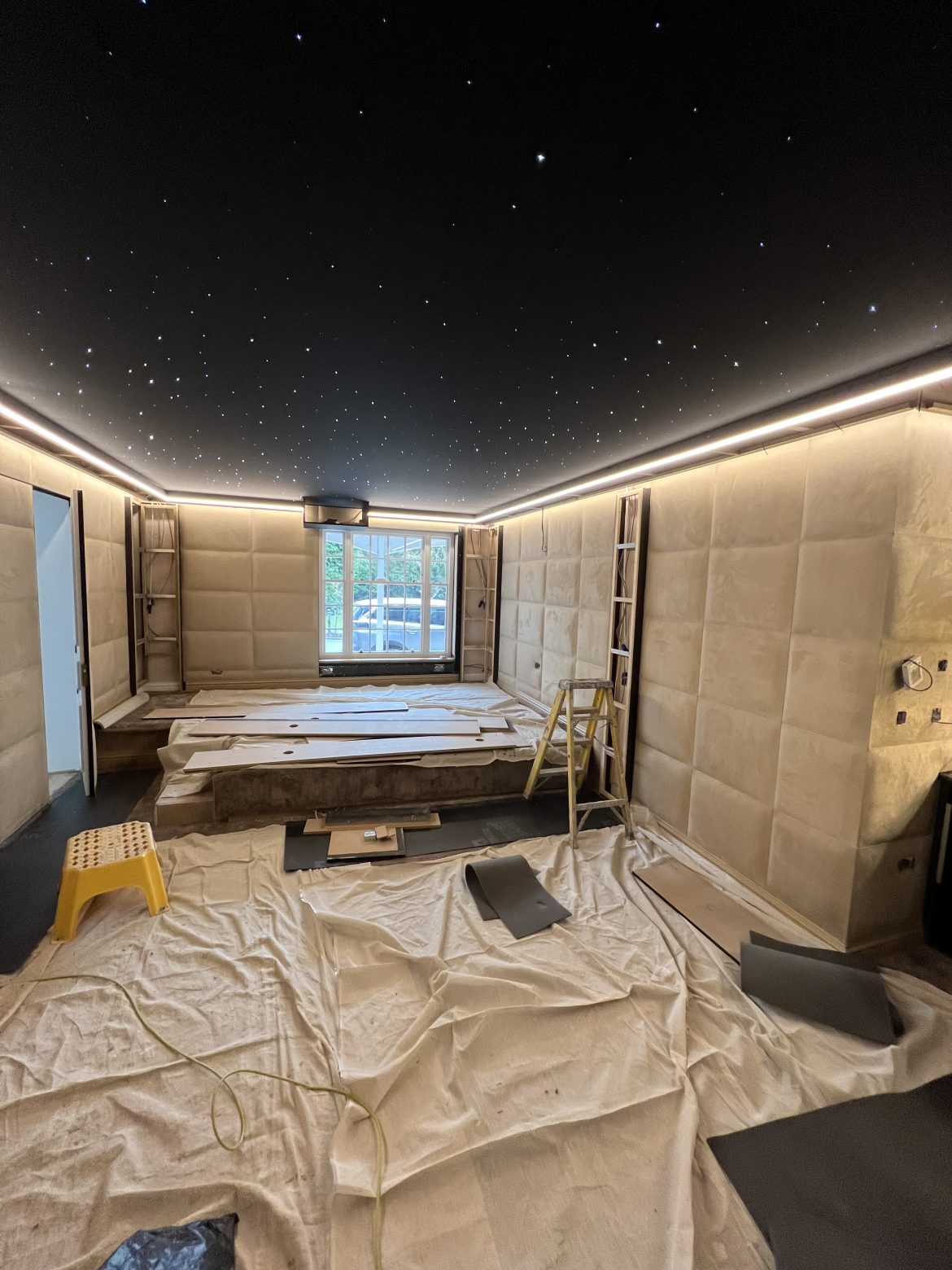When creating a home theatre in the UK, choosing between a projector and a television is one of the biggest decisions you’ll face. Both options offer great viewing experiences, but they come with different advantages depending on your space, budget, and preferences.
Understanding the differences will help you choose what best suits your home and viewing style.
Whether you’re planning movie nights, watching live sports, or streaming TV shows, the right setup can transform your room into a cinematic space. This guide compares projectors and TVs to help you make the right choice for your home theatre.
Picture Size and Viewing Experience
Projectors offer a more traditional cinema-like feel with larger display sizes.
- Projectors can create screen sizes from 80 inches to over 150 inches, ideal for immersive viewing
- TVs are typically limited to 85 inches or less, but with brighter and sharper images
- Ultra-short-throw projectors work in tight UK living spaces without needing a large room
- TVs provide consistent image quality regardless of lighting or screen size
If you’re aiming for a true “big screen” experience, a projector can deliver it. However, for day-to-day use or rooms with lots of natural light, a TV may offer better performance.
Lighting and Room Conditions
Your room’s lighting plays a major role in deciding between a projector and a TV.
- Projectors perform best in darkened rooms or those with blackout blinds
- TVs offer better brightness and contrast in well-lit environments, common in UK homes
- Ambient light can wash out projected images unless you invest in high-lumen projectors
- Some projectors now support HDR and 4K but may still struggle with clarity in daylight
In typical UK living rooms, a TV may be more practical due to unpredictable daylight and limited blackout options. Projectors, however, excel in converted cinema rooms or basements.
Cost and Setup Requirements
Both options come in a wide range of prices, but their installation needs differ.
- Entry-level projectors start around £300, with high-end models reaching £3,000+
- Large TVs (65 inches and above) range from £700 to over £2,500
- Projectors need a screen or suitable wall, and may require ceiling mounting or shelves
- TVs are plug-and-play, with easier cable management and fewer components
While projectors may offer larger images for less money, the additional cost of setup and accessories can add up. TVs tend to be more straightforward for everyday users.
Longevity, Maintenance, and Everyday Use
Think about how often you’ll use your home theatre and what maintenance is involved.
- TV screens typically last longer with minimal upkeep
- Projectors require occasional bulb replacements, which can cost £100–£300
- TVs are better suited for general use such as gaming, news, or streaming
- Projectors may take a few moments to warm up and can be noisier due to built-in fans
If you plan to use your setup daily, a TV may be the more reliable and maintenance-free choice. Projectors are excellent for occasional film nights or immersive events.
Choosing between a projector and a TV for your UK home theatre depends on your space, lighting, usage, and budget. Projectors are ideal for a cinematic experience in a dark, dedicated room, while TVs offer sharp visuals, easy setup, and everyday practicality.
Assess your needs carefully to build the perfect viewing setup for your lifestyle.

